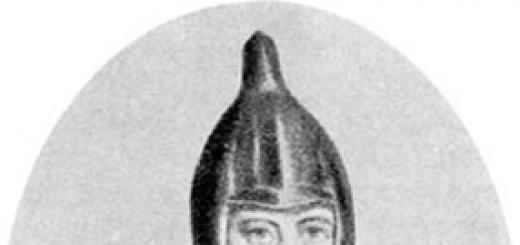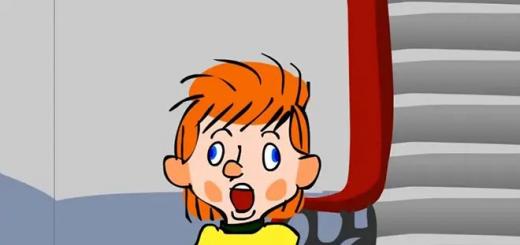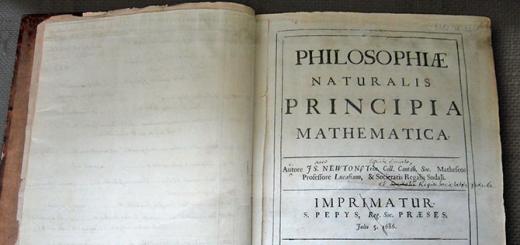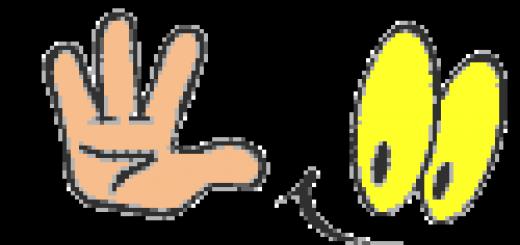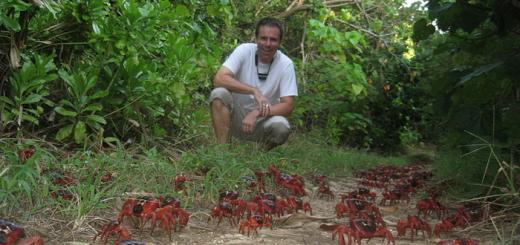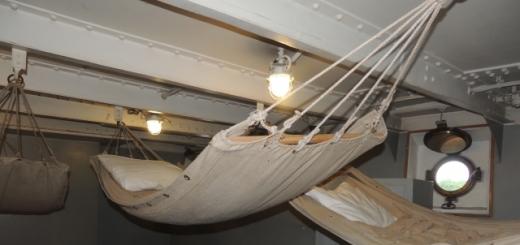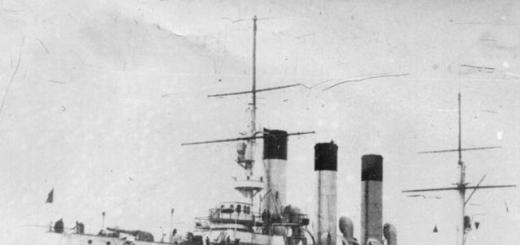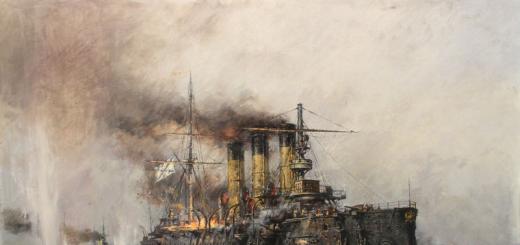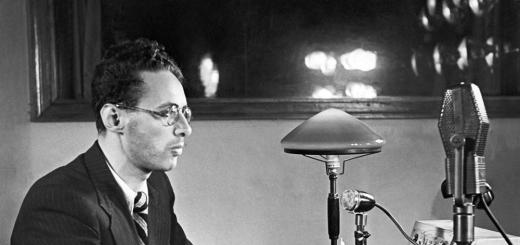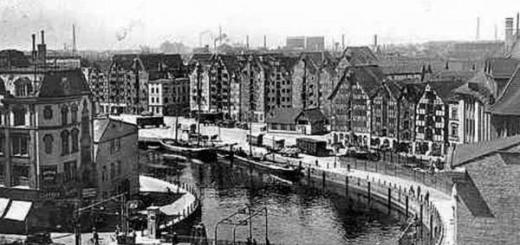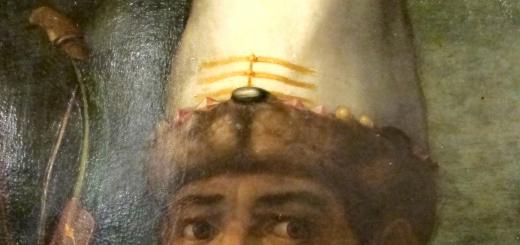Traveling through the pages of our favorite books together with literary heroes, we were once again convinced that the works of E. Uspensky are cheerful and funny, funny and instructive, which is why both adults and children love to read them so much.
Once a serious and independent boy, nicknamed Uncle Fyodor, met a talking cat Matroskin and brought him home. But Uncle Fyodor's mother did not like animals at all, especially all kinds of cats.
How this discussion ended in the book by E. Uspensky "Uncle Fyodor, the dog and the cat", you, of course, remember: my mother did not allow me to leave the cat. Uncle Fyodor was an obedient boy and loved his parents very much, but he also loved animals. Therefore, he decided to leave home with Matroskin and start a new independent life. On the way, friends met a homeless dog Sharik and went with him in search of the best house in the village of Prostokvashino. So we got to know the characters of one of our favorite works by E. Uspensky "Uncle Fyodor, the dog and the cat".
Then we watched the cartoons based on this work, and got a lot of pleasure. The characters of these cartoons have become our favorites. The voice of Sharik dubbed by Lev Durov, the purring voice of the cat Matroskin performed by Oleg Tabakov have become as recognizable for us as the voices of our loved ones. And the thought occurred to us whether we and the other guys could find out which of the heroes of the “sour milk” says his line in the dialogue, if we don’t hear familiar voices from the cartoon, but focus only on the text of these lines in the book (at the same time on the words we will not watch the author either).
We decided to conduct an experiment in the 2nd grade in the form of the game "Who said?". The children were offered to listen to nine statements of the characters and guess who they belong to. The following statements were offered:
1. “I am writing a letter to one institute where the sun is studied. I have connections there. These are business acquaintances when people do good things to each other for no reason at all. Just for old times' sake." (cat Matroskin)
2. “Who knew him that he lives in the water. I thought he wanted to drown! Look how wet I am!” (dog Sharik)
3. “It is necessary that the TV was a must in the house. And the windows are big. I just found this house. The roof is red. And there is a garden with a vegetable garden. (Uncle Fedor)
4. “Buy him lottery tickets for a hundred rubles. Let him win what he wants. Whether it's a motorcycle or a car. He sells the tickets himself. He gets a double benefit. From ticket sales and winnings. (cat Matroskin)
5. “He went to Africa. On a business trip. Learn the language of elephants. And I stayed with my grandmother. Only we didn’t get along with her characters. ” (dog Sharik)
6. "We will find a box like Pechkin's, and write everything on it, and when Pechkin comes, we will change the boxes." (Uncle Fedor)
7. “Have you forgotten? You are now a poodle. You say: “Ugh! Some rabbit. Hares don't interest me now. I am interested in bringing slippers to the owner. (Uncle Fedor)
8. “Now we have to buy a new table. It's good that he cleared all the dishes from the table. We would be left without plates! With one fork." (cat Matroskin)
9. “It’s good for old women when there are only stumps in the forest, you can sit on them. And what will the birds and hares do? Have you thought about them? (dog Sharik)
The guys very easily guessed whose statements these were. However, difficulties were caused by the replica of the cat Matroskin No. 4 and the replica of Uncle Fedor No. 7
And then we decided to study the text of E. Uspensky's story "Uncle Fyodor, the dog and the cat" in more detail, reading the dialogues and trying to imagine the character of the characters only from their remarks. And here's what we got.
Khodakova Elizabeth
About Uncle Fedor
Uncle Fyodor, like every child, dreams of becoming an adult as soon as possible. It is no coincidence that E. Uspensky calls him not just Fedya, or Fedenka, as children are usually called, but Fedor, and even uncle. The boy really wants to be independent, and says to Pechkin: “I am nobody. I am a boy myself. Your own.” Yes, and the actions of Uncle Fyodor are performed by adults. This is what he writes in a letter to his parents: “I am leaving for the village, and I will live there. You don't worry about me. I won't get lost. I can do everything and I will write to you.
Uncle Fyodor is a smart boy. His ingenuity was evident in everything. When friends had no money, and the cat wanted to sell Sharik, Uncle Fyodor suggested a great idea: “We won’t sell anyone, we’ll go look for a treasure.” When Sharik grieved that he was not successful with hunting, and then the boy came up with the best idea: “We will buy you a camera. You will be doing photography. You will take pictures of animals and send photos to various magazines. Yes, and with a package from scientists, Uncle Fyodor came up with a great idea: “We will find a box like Pechkin’s, and we will write everything on it, and when Pechkin arrives, we will change the boxes.”
Uncle Fyodor, as an adult, took everything very seriously. When they chose a surname for the cat, he said: "Let's give you the surname Matroskin, and it is connected with cats, and there is something marine in this surname." And how seriously he took the choice of a house: “It is necessary that a TV be in the house. And the windows are big. I just found this house. The roof is red. And there is a garden with a vegetable garden.
The boy loves his parents very much. In each letter, he writes: “Mom and dad, I love you very much”, “I miss you very much”
But he also loves animals. Leaving for the village, he writes in a letter: "And I love animals very much." When the boy brought the cat Matroskin home, he said to his parents: “Only if you drive the cat away, I will also leave you.” Even Sharik, a simple yard dog, was taken to the hairdresser's and asked: "Cut it like a poodle, so that it looks beautiful." And when the boy and Matroskin were looking for a house, they met Sharik and started talking about choosing a house, the cat did not like the meeting with the dog, he did not want to take him into the house and interfered in every way with the conversation. Uncle Fyodor immediately understood everything and said: “You, cat, shut up. A good dog has never hurt anyone. Let's better find out where he learned to talk. But Uncle Fyodor loves not only Sharik and Matroskin, but also simple forest animals. When Sharik brought a hare from hunting, the boy let him go with the words: “The animals in the forest must live. There is nothing to arrange a zoo here.
But at heart, Uncle Fyodor is still a child. He dreams of a bicycle: “I was not allowed to start it (a bicycle) in the city: there are a lot of cars there. And here I can ride as much as you want. Through the countryside and through the fields. Back and forth. Back and forth."
I really like Uncle Fedor. Thanks to his intelligence, kindness, friendliness, he became a favorite not only of children, but also of adults.
Marakulina Alina
About the dog Sharik
Sharik is an ordinary mongrel dog. He says this to himself: “I am from ordinary dogs, not from thoroughbreds.” Uncle Fyodor and the cat Matroskin met him in the village. Sharik was very lonely and wanted to find a family. At the meeting, he said so: “Take me to live with you, I will guard your house.”
Before meeting with friends, Sharik lived poorly, he told Uncle Fyodor: “When they feed, it’s good, when they don’t feed, it’s bad.”
This dog, though yard, but polite, he bows and says: "Very nice." Sharik also knows the human language: “I guarded the dacha of one professor, so I learned it,” and is familiar with the multiplication table: “Five five - twenty-five, six six - thirty-six.”
Sharik is a hardworking dog. Here's what he can do: "I can spud potatoes with my hind legs and I can wash dishes - lick with my tongue."
However, Sharik turned out to be a simple dog, even a little stupid. He still could not understand where his friends were going, what treasure they wanted to find? And all the time he called the treasure a “warehouse” and asked: “What is a “warehouse”? And why didn’t you, Uncle Fyodor, look for treasure in the city? When Uncle Fyodor said goodbye to his friends before leaving for the city, Sharik listened attentively to the conversation between Uncle Fyodor's mom and dad and at the end said: “It's all interesting what you are talking about. The truth is, I don't understand anything." And also, due to his stupidity, Sharik "saved" a beaver, which dived into the water. Matroskin said that the beaver lives in the water and there is no need to save him, and the dog replies: “Who knew him that he lives in the water. I thought he wanted to drown!
But still, Sharik is a kind dog. “There is no need to cut the forest. This is good for old women when there are only stumps in the forest, you can sit on them. And what will the birds and hares do? Have you thought about them? - Sharik was indignant, protecting nature, when Matroskin sent him to the forest for firewood. Only out of the kindness of his soul, the dog rushed to save the beaver, who didn’t need it at all: “Barely, I caught him. And then he would drown. He's still small, after all." Disliking a cat, like any dog, Sharik nevertheless kindly advised Matroskin: “Well, well, buy yourself a cow. And it’s better to rent it to try it first. ”
But Sharik does not like Pechkin because the postman is harmful and curious, sticking his nose everywhere. “What kind of animals stick stamps? Horses, right? - Sharik laughs at Pechkin, when the postman became completely ill from the heat of the electric sun, and he began to confuse everything. The dog always asked Uncle Fyodor: “Can I bite him (Pechkin)? Why doesn't he leave?"
Sharik has a hobby - hunting. He cannot live without her. Once he wanted to go hunting so much that he began to shout: “Step aside! My instinct awakens. Animals are designed to be hunted. I did not understand this before, because I lived badly. And now I have recovered, and I was pulled into the forest with terrible force! “I’ll write about the hunt!” - he said to the postman Pechkin, when he came to find out what the new tenants would write out. And when the friends were deciding what to buy for the found treasure, Sharik directly told Uncle Fyodor: “I need a gun, I will go hunting with myself, and also a hunting bag.”
Sharik likes to brag a little. He asks Uncle Fyodor: “The collar is needed with medals,” but he himself did not deserve them. Pechkin also began to brag: “Throw your hat. Now there will be nothing left of her. One hole"
Despite some of Sharik's dog habits and his silly disposition, I would like to have such a devoted friend as he is.
Davydova Alina
About the cat Matroskin
I read a lot, but I have never met such a cheerful, kind, economic and intelligent hero as the cat Matroskin in any book.
From the first lines of the fairy tale, Matroskin fascinated me; what is his cunning advice worth: “You are wrong, Uncle Fyodor, eat a sandwich. You hold it with the sausage up, but you have to put it on the tongue with the sausage. Then it tastes better." Now I myself eat sandwiches, as Matroskin taught, and, however, they have become much tastier.
The fate of Matroskin is also amazing. At first he was a homeless cat: "I live in the attic, only my attic is being repaired and I have nowhere to live." The cat didn't even have a name. “And they called me Barsik, and Fluffy, and Bolthead. And even Kis Kisych I was. It's just that I don't like it. I want to have a surname, ”the cat told Uncle Fyodor on the bus on the way to the village. But then the boy came up with a beautiful marine surname Matroskin for him, and the cat's life changed dramatically for the better.
Matroskin is a very economic cat. At the first meeting with Sharik, he says so: “You come running to us in a year, when we get rich and start farming.” He always wanted the farm to have a cow: “The farm needs a cow. What kind of a farm is this without a cow Without milk, you can die, you need to buy a cow, ”and even wanted to use Sharik for this: “Come on, Sharik, we will sell you. Any hunter will give you a hundred rubles for you, and then you will come running to us again. And we are already with the cow.
Matroskin really did not like to sit idle, and even more disliked when others were not working. The cat taught everyone to work. Even Khvatayka, a little dick, taught him to say "Who's there?" for good. “Why are we feeding him in vain! Let it bring benefits. A person will come, start knocking on the door, the little jackdaw will ask, “Who is there?” The person will think that someone is at home, and will not steal anything. Is that clear?" - the cat explained to Sharik. As for Sharik, Matroskin also had his own opinion: “Let him be a poodle. He will live in the house and serve slippers. Even in relation to Pechkin, Matroskin is looking for a benefit: “Buy him lottery tickets for a hundred rubles. Let him win what he wants. Whether it's a motorcycle or a car. He sells the tickets himself. He gets a double benefit. From ticket sales and winnings.
The thriftiness of Matroskin simply surprises me. The cat was very resourceful. “Firewood must be harvested - winter is on the nose. Take a rope and go to the forest" and ". think not of beauty, but of frost. When it hits forty degrees, what will you do? - Said Matroskin to Uncle Fyodor.
And how much he loved his cow, there’s nothing to say: “I won’t part with my Murka for anything. I will definitely buy it." Although, because of his greed, at first he rented a cow and did not want to give away the calf that his cow gave birth to: “But we took it (the cow) on a receipt! Look what is written here: “Cow. Redhead. One". Nothing is written about the calf. And since we took the cow according to the receipt, then according to the receipt we will hand it over - one.
Matroskin is a business cat, he also has an acquaintance with a pediatrician in the city: “I know one good doctor, a pediatrician. I will bring him"; and good connections with scientists at the Institute of the Sun, who sent an electric sun to friends: “I am writing a letter to one institute where the sun is studied. I have connections there. These are business acquaintances when people do good things to each other for no reason at all. Just from old memory, ”Matroskin even knew their“ exact ”address:“ Moscow, Institute of Solar Physics, Department of Sunrises and Sunsets, to a scientist at the window, in a dressing gown without buttons. Who has different socks";
Matroskin is very economical. To Pechkin’s question: “What will you prescribe?” he replies, “I won’t do anything. I will save." And once the parents wanted to feed the tractor Tr-tr Mitya with chocolate and oranges, the cat immediately found something to answer: “There is nothing to pamper Mitya. We have a whole pot of boiled potatoes.”
Despite all his frugality (even, sometimes, greed) and efficiency, Matroskin is a devoted friend. When Uncle Fyodor fell ill, he was the first to say: “I will run to the city for a doctor. Uncle Fyodor must be saved. When Uncle Fyodor's parents arrived, the cat immediately became friends with his mother, treated her to tea with pies: “Just think, pies. I also know how to embroider and sew on a typewriter. And when Uncle Fyodor left for the city, Matroskin decided to give him Khvatayka: “Here, take it. You'll have more fun with him."
And how savvy is this cat Matroskin! To Pechkin’s question: “What is the chest for?”, - how he quickly found the answer: “For mushrooms. We pickle mushrooms in it. Right in the forest. Do you understand?"
Look what a good cat Matroskin! Is not it?
The Soviet cartoon about the village of Prostokvashino is one of the top television projects for children, on which more than one generation has grown up. This cartoon is traditionally shown on TV in the pre-New Year period, today it can also be viewed on the Internet. The cycle consists of three episodes: "Three from Prostokvashino", "Vacations in Prostokvashino" and "Winter in Prostokvashino".
The perky characters presented in the animated film are easily remembered by kids. The remarks that are pronounced, Uncle Fedor, and are passed from mouth to mouth in the form of aphorisms. The songs used in dubbing cartoons also gained great popularity.
History and plot
The basis for the famous cartoons was the work "Uncle Fyodor, the dog and the cat", which was written by the children's author Eduard Uspensky. The story about a boy, whose friends became the dog Sharik and the cat Matroskin, gave life to the animated series. The book described the life and adventures of an ordinary Soviet family, and the cartoon gave it a curious continuation.
Uncle Fyodor is the main character of the plot. In the cartoon, she gave him a voice. This is an erudite boy who by the age of four was reading books on his own, and at the age of six he was able to cook his own dinner. Parents, mother Rimma and father Dima, love their son and trust him, realizing that the child grows up as a reasonable and reasonable person, not prone to pranks. That's why they called him "Uncle". The idea that Uncle Fyodor is just going to school hardly fits in the minds of viewers, because the boy appears to be an accomplished person.
He loves animals, but keeping a pet in a city apartment is impossible, as his mother does not have sympathy for dogs and cats. Uspensky's story tells how Uncle Fyodor had a fight with his parents and, eating a sandwich, went for a walk. On the way, he met new friends with whom he decided to move to a new place of residence. They became the village of Prostokvashino. A seven-year-old boy with bright blue eyes and red hair writes a letter to his parents, in which he says that with new friends, a good-natured homeless dog and a cunning cat, he plans to settle in the village.

The life of Uncle Fyodor becomes diverse, because the cat and the dog offer interesting initiatives. Together they search for a treasure in order to receive a reward. With the proceeds, friends decide to buy a cow. Murka, who became the brainchild of Matroskin, gives milk, and over time, she has a calf.
Uncle Fyodor manages to manage everyday life and constantly reconcile Matroskin and Sharik, who live "like a cat and a dog" and only occasionally declare a truce. The boy establishes relations with the suspicious and grouchy postman Pechkin and finds in Prostokvashino a second home, which he lacked in a Moscow apartment.
Uncle Fyodor does not forget about his parents and periodically writes letters that describe pictures from his village life. Happiness lasted until he fell ill, and his parents took him home for treatment, promising that the boy would spend his holidays and summers in Prostokvashino in the company of Matroskin and Sharik.
A family
The cartoon describes a typical Soviet family, consisting of parents and a boy - Uncle Fyodor. Later, a dog and a cat become its members, faithfully waiting in the village of Prostokvashino. For three cartoons, the image of the boy changes, but his clothes remain the same. These are the realities of the harsh Soviet childhood. Over time, the viewer learns various details about the life of the family from the plot.

Uncle Fyodor's dad was an academic of a respectable appearance: with a beard and with a pipe in his hands. He was not distinguished by career achievements, but was a loyal father, an honest and reasonable man, prone to irony. He easily goes on adventures, has various knowledge and skills: he can easily fix a car and does not disdain to pull it out of the snow blockages on his own. Dad is not passionate about raising Uncle Fyodor and perceives him as an equal, for which he periodically receives a reprimand from his mother.
Forbidding nothing to his son, he easily lets the child go to live in the village, while he himself basks in the gentle sun of the resort, not worrying about the boy's safety. A man can be considered henpecked, because he listens to the opinion of his wife in everything and tries not to upset her.

But at the right moment, he is able to make a serious decision, and the last word remains with him. Dad loves his family, is jealous of his wife for his colleagues and is not against the second child, who is so afraid of Uncle Fyodor's mother.
Rimma at first glance creates a not very pleasant image. She doesn’t even want to think about a second child, because now her career is in the first place for her. A hysterical and scandalous woman is accustomed to reproaching her husband for inactivity, keeps her son in strictness and now and then complains about her life. At the same time, she does little to raise her son, who is forced to become independent from an early age. Modern parents are horrified, realizing that Uncle Fyodor ate sandwiches and walked around with homeless animals.

The boy's mother is much more concerned about her appearance and self-realization. At the same time, she manages to do household chores and, perhaps, quite objectively declares that she has no strength left for anything else. Like any Soviet girl, she is optimistic and athletic.
After persuasion, she nevertheless decides on such an adventure as meeting the New Year in Prostokvashino, and gets there on skis to be with her family. It is difficult to call this family a full-fledged one, it is the personification of a cell of Soviet-era society, in which the husband repairs the car, the mother takes care of the household and manages to work, and the son is left to himself, but manages to grow up as a decent person.
cartoons
All three cartoons are based on a plot invented by Eduard Uspensky and tell about life in Prostokvashino and adventures in the family of Uncle Fyodor. Over time, cartoons have gained more popularity than the story. The first cartoon - "Three from Prostokvashino" - was created in 1978. Two years later, “Vacations in Prostokvashino” appeared on the screen, and in 1984 viewers were able to see the cartoon “Winter in Prostokvashino”.
Modern animators tried to repeat the success of the trilogy by creating a series called "Spring in Prostokvashino", where the main characters controlled computers and other technological advances. They were not in demand among viewers who were accustomed to emotional images and a simple plot.

The specifics of creating a three-part project was that the director Vladimir Popov distributed the images among the directors. So, Levon Khachatryan got his parents, Pechkin and Uncle Fedor, and Nikolai Yerykalov worked on animal characters: Matroskin, Sharik, Murka and Gavryusha. Uncle Fyodor's parents resembled the Swedish family depicted in the 1968 cartoon The Kid and Carlson. The images described in the cartoons were carefully crafted and believable. Some of them were based on famous people and characters.
For example, the wife of Khachatryan, Larisa Myasnikova, became the prototype for Rimma's mother. And the prototype of Pechkin is Kurochkin from the cartoon "The Adventures of Vasya Kurolesov." The directors who worked on the animated series already had experience in creating successful projects. A vivid example of joint creativity is the cartoon "Bobik visiting Barbos".

But, despite the successful interaction, the directors for a long time could not understand what Uncle Fyodor should be, so his type was subject to changes from cartoon to cartoon.
Russian animators are planning to release 30 episodes about the adventures of their favorite heroes in modern realities. In the future, viewers will be able to see how familiar characters have changed in 20 years.
Who didn't watch this cartoon as a kid? But what can we say about the kids, even if adults enjoyed watching the adventures of the main characters - a boy, a cat and a dog. And then they repeated their expressions, which immediately became winged.
cartoon story
What is the name of the cat from Prostokvashino, the dog and the boy, probably, any person will answer awake. Therefore, we will leave the answer to this question for later, and now let's talk about the cartoon itself and its creators.
In 1978, the Soyuzmultfilm studio created a unique masterpiece - Three from Prostokvashino. The plot was based on a story which, by the way, was also the author of the script for the cartoon. After some time, a continuation appears - two more series with beloved characters. The heroes were voiced by well-known personalities at that time - Oleg Tabakov (cat), (Uncle Fedor), Lev Durov (dog), (mother).

Heroes of the picture
What is the name of the cat from Prostokvashino and other heroes? We are happy to answer. The main character is a boy named Uncle Fyodor. He was accompanied by the cat Matroskin, whose photo can be seen in our article, as well as the dog Sharik. There are also a few more heroes: mom and dad, little jackdaw. They appear in every cartoon series.
"Three from Prostokvashino": the plot
So, what is the name of the cat from Prostokvashino and other characters, we figured it out. Now let's talk about the plot of the first part of the trilogy. In the cartoon, we meet a small but very independent boy. He loves animals, but his mother categorically forbids him to have pets. Having met a homeless cat, he takes him home. But since mom issues an ultimatum, Uncle Fyodor secretly packs up and leaves with a new friend in the village. In Prostokvashino they are joined by Sharik, who shows an empty house. A friendly company settles there.

They needed money to live, so the boy suggested looking for a treasure. Of course, they found the treasure and began to live in clover. Matroskin got a cow, Sharik became interested in photography. But Uncle Fedor began to look for his parents. In their search, a postman from Prostokvashino helped them, as he wanted to receive an award - a bicycle. Having become better acquainted with her son's animals, the mother allows her to take them with her to the city. But the cat and the dog refuse and invite everyone to visit them for the weekend.
Success cartoon and phrase cat Matroskin
The success of the cartoon was brought not only by idols who voiced the main characters. An interesting plot, vivid images and catchphrases left no one indifferent. What are the heroes saying that meat is worth buying in a store, because it is there with bones (Sharik), that you can sell something unnecessary to buy things, but you must first buy it (Uncle Fyodor)! But the cat's phrases are the most memorable. He seriously declares that one can die without milk, tells how to eat a sandwich, shares that he can embroider and sew on a typewriter.

The original name of the cat Matroskin
In general, Matroskin is the most striking character in the cartoon. Wise, reasonable, kind, caring, economic. What is the name of the cat from Prostokvashino, even a preschooler knows. Although few people know that at first Ouspensky wanted to name it completely differently - in honor of his friend Anatoly Taraskin, who was an employee of the Wick film magazine. As the writer admitted, the image of Matroskin was written from him. But he refused to give his name to the cat, which he later regretted greatly. Therefore, the original name of Matroskin's cat - Taraskin - has changed.

Be that as it may, whether the creators succeeded in realizing everything that was conceived - now it does not matter, because the cartoon turned out to be famous. And now we are happy to watch it, show it to our children, recalling pleasant moments from the past with nostalgia.
The story of Eduard Uspensky "Uncle Fyodor, the dog and the cat" was published in 1973, and 5 years later, the famous cartoon was shot on it, which has long become a classic of Soviet animation and has not lost popularity with either children or parents for 40 years. But even the most devoted fans are hardly aware that some of the characters had real prototypes, and the characters themselves initially looked completely different, and their appearance underwent significant changes from series to series...

This story began in a pioneer camp, where at that time Eduard Uspensky worked as a librarian. There were not enough good children's books in his library, and the aspiring writer began to invent stories about the adventures of the inhabitants of the village of Prostokvashino. This is how Uncle Fyodor, the cat Matroskin, Sharik and the postman Pechkin were born. Initially, Uncle Fyodor was an adult forester living in a fairy-tale village, but on the advice of the writer Boris Zakhoder, Uspensky made him a 6-year-old boy - the same as his potential readers. " And I rewrote the whole book. Therefore, Uncle Fyodor turned out to be so mature", - said Uspensky.


In fact, Uspensky's book was filmed for the first time back in 1975. However, the three-part cartoon "Uncle Fyodor, Dog and Cat" was not successful. After 3 years, they decided to reshoot it, for which Eduard Uspensky had to rewrite the script. However, the result justified all the efforts spent - "Three from Prostokvashino" enjoyed incredible popularity, hundreds of times more than the book.


Two production designers worked on the new cartoon: Levon Khachatryan created the images of the postman Pechkin, Uncle Fyodor and his parents, and Nikolai Yerykalov was the creator of the cat Matroskin, Sharik, the cow Murka and the calf Gavryusha. The most difficult thing was to work on the image of Galchonok - the bird did not turn out the way the director wanted to see it. As a result, several animators had to work on it at once.


Some characters had real prototypes. For example, Levon Khachatryan drew the appearance of Uncle Fyodor's mother from his wife, actress Larisa Myasnikova. " Petite, short hair, glasses. Popov made his corrections... Points. On my sketch, they were round, which my wife wears, but Popov thought that square ones were better.", - said Khachatryan. Larisa Myasnikova was not happy with the result - the heroine written off from her looked too capricious and nervous on the screen. However, the very shape of the glasses made her change her anger to mercy: “ I wouldn't wear these for anything. I hope everyone understands this, and no one will associate this mother of yours with me.».



The image of Uncle Fyodor became the subject of heated debate - the director was not satisfied with the end result. While working on the next series - "Holidays in Prostokvashino" - another animator, Arkady Sher, joined the work. He changed the appearance of almost all the characters, but the most noticeable transformation occurred with Uncle Fedor. Because of this, Levon Khachatryan quarreled with the director and then left the project. In the creation of the third series - "Winter in Prostokvashino" - he no longer took part. Meanwhile, Uncle Fedor has changed beyond recognition. " If you put Uncle Fedorov from all three series side by side, it turns out that these are completely different boys! I don't understand this”, Levon Khachatryan lamented.



Not only Uncle Fyodor's mother had her prototype, but also the cat Matroskin - however, this concerns a book, not a cartoon character, and to a greater extent his character, and not his appearance. Eduard Uspensky "written off" the cat from his friend Anatoly Taraskin, an employee of the satirical film magazine "Wick". From him, the cat Matroskin inherited prudence, thoroughness, practicality, rationalism, thriftiness, and at the same time his surname - after all, in the original version he was the cat Taraskin.


However, the prototype rebelled against the excessive caricature of the image: “ You are crazy! Do you want to ridicule me all over Moscow? I don't want to be some book cat. If you suggested that I immortalize myself in a more famous character, I would still think ...". Taraskin could not even imagine how popular the character written off from him would become. According to Ouspensky, he later regretted his decision and said: " What a fool I was! Surname regretted to give! So at least he would go down in history". But among the audience, Matroskin is more associated with the actor who gave him his voice - the brilliant Oleg Tabakov.


At the request of the script department, many lines of the characters had to be rewritten. Eduard Uspensky said that initially the cat Matroskin, pacing from corner to corner “like a political prisoner”, had to say: “ They built socialism in the yard, and we have one pair of felt boots for everyone, like under tsarism". But in the final version, this phrase sounds more “politically correct”: “ In the courtyard of the end of the twentieth century, and we have one pair of boots for all, as in the time of Tsar Pea».
Many texts of the children's writer were subjected to censorship: .
